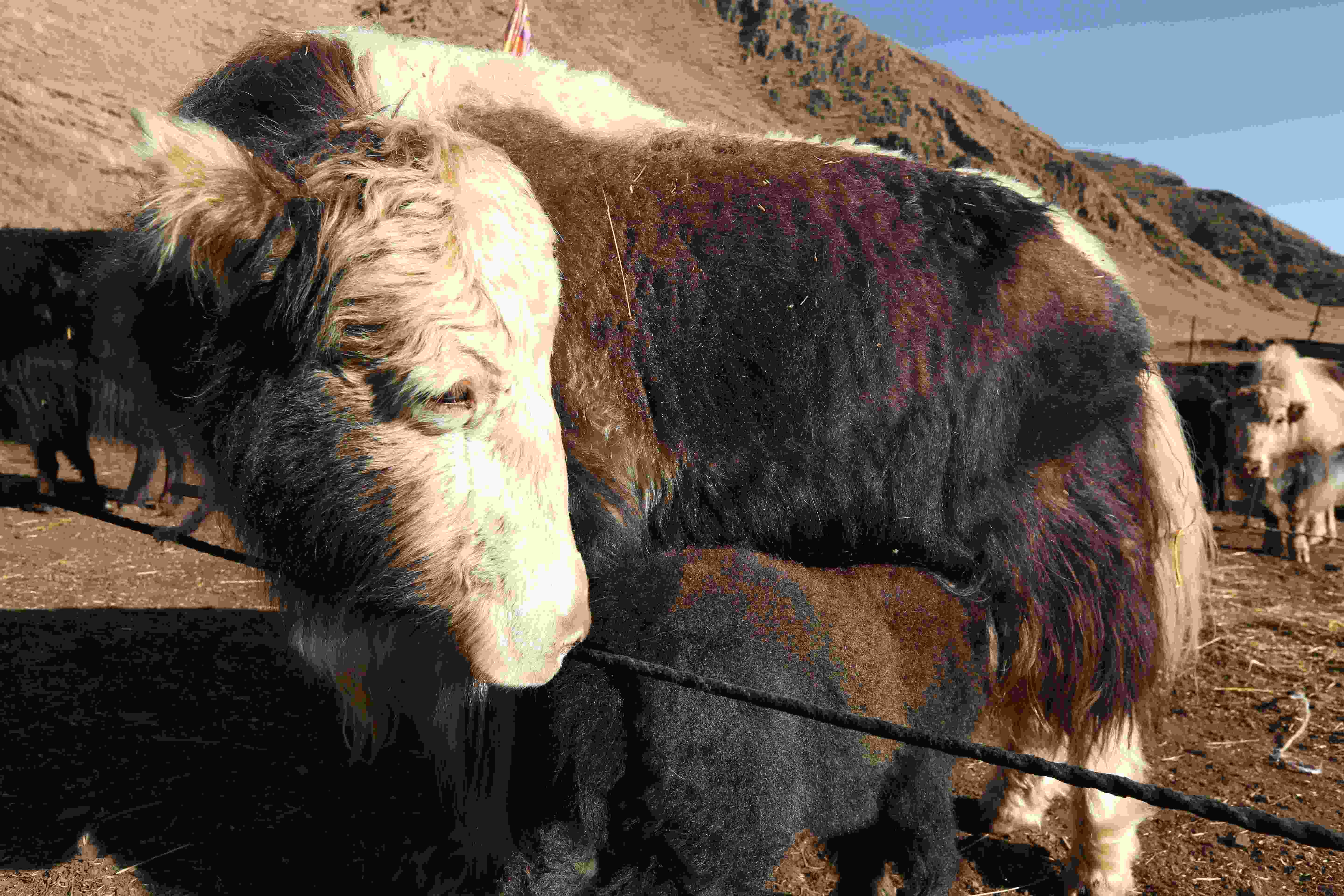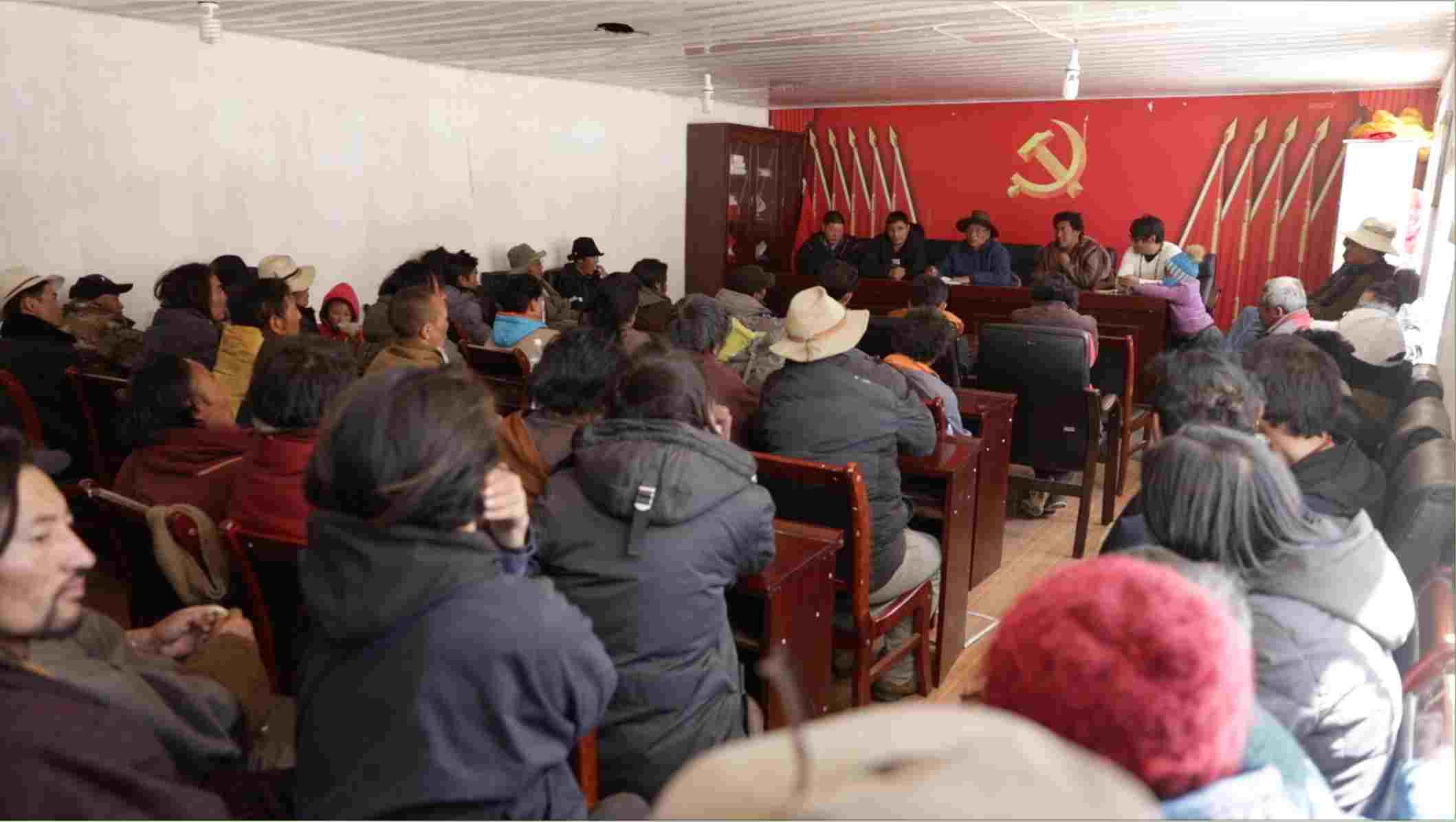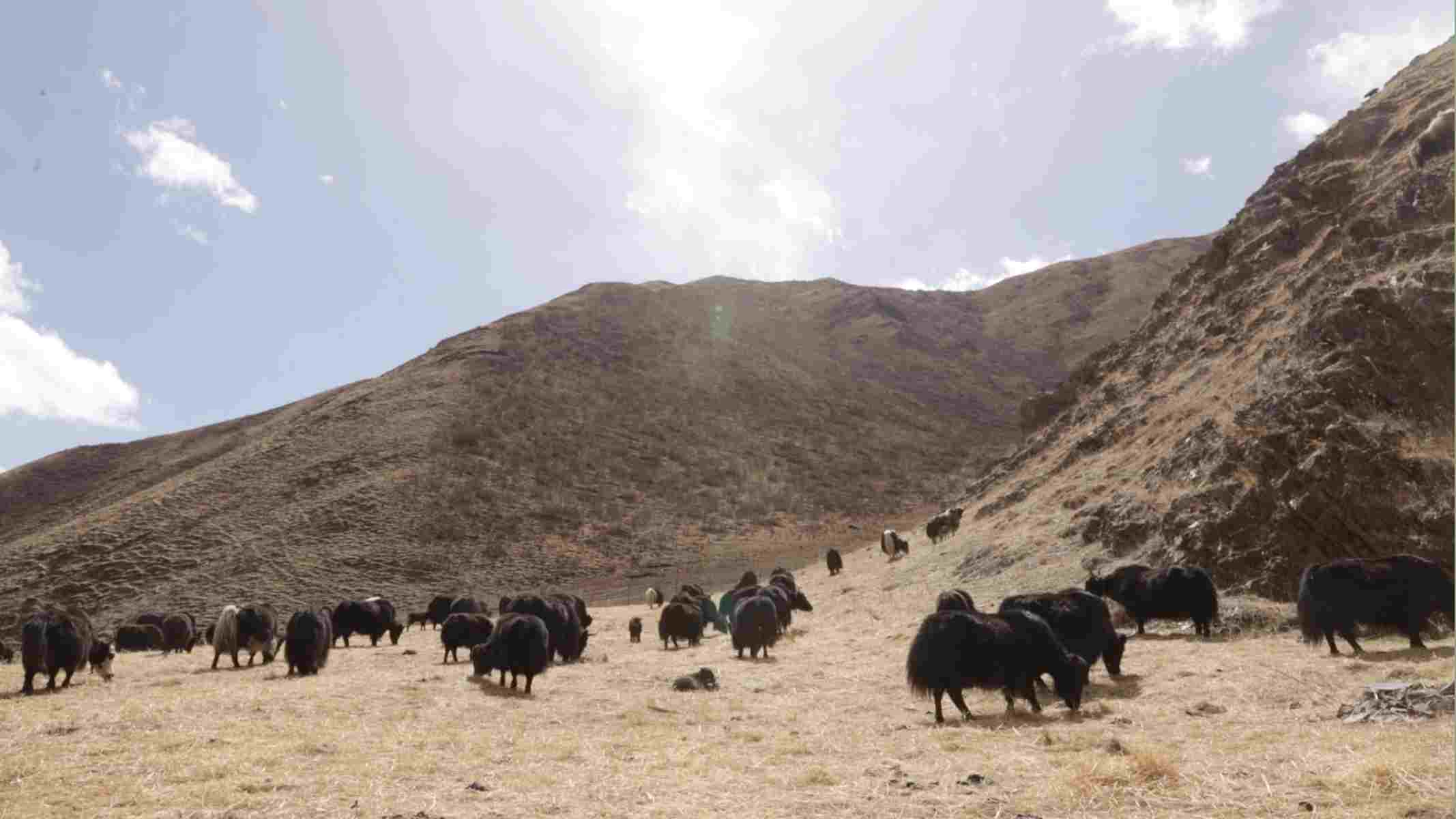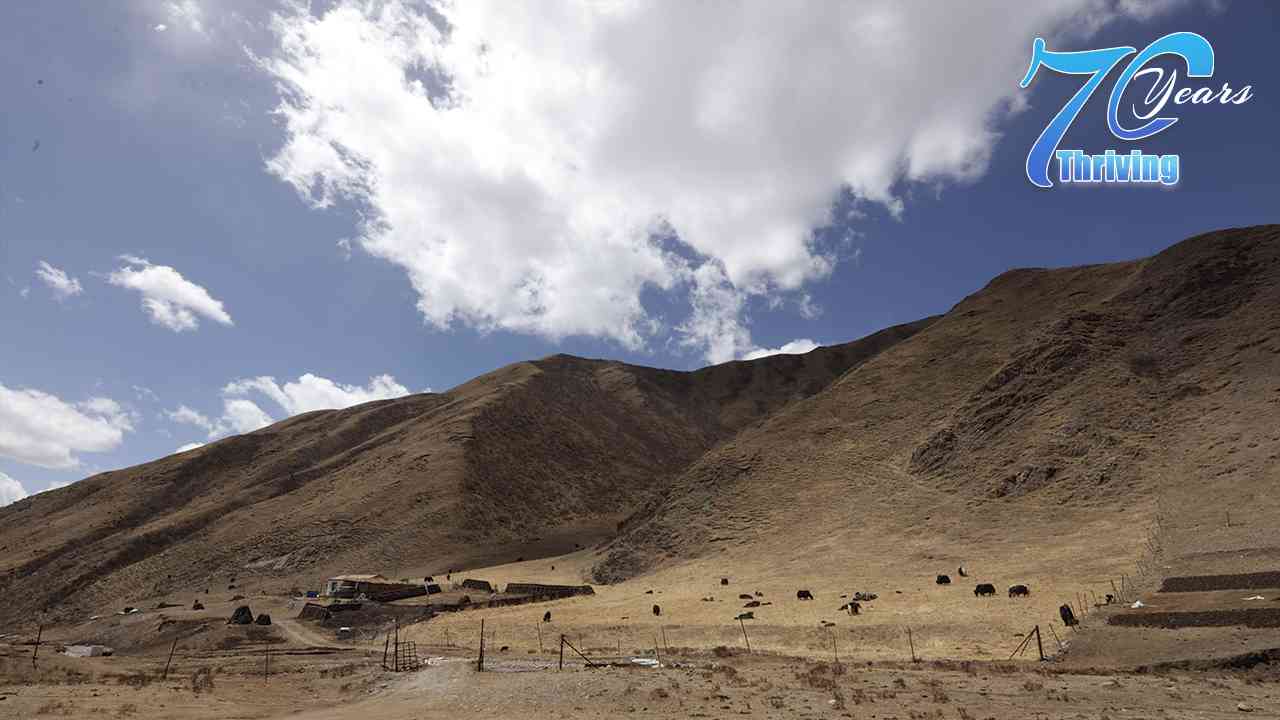For a long time, animal husbandry has been the primary source of income for the villagers in Ganglong township of northwest China's Qinghai Province. However, due to overgrazing, natural disasters and human-made destruction, grassland degradation, desertification, pest and rodent infestation are growing issues which severely restrict the sustainable development of animal husbandry. In this context, the "Ganglong Ecological Animal Husbandry Cooperatives" emerged.

Animal husbandry is still the primary source of income for many villagers in Ganglong township, Gande County, Guoluo Tibetan Autonomous Prefecture, northwest China's Qinghai Province. /CGTN Photo
Animal husbandry is still the primary source of income for many villagers in Ganglong township, Gande County, Guoluo Tibetan Autonomous Prefecture, northwest China's Qinghai Province. /CGTN Photo
The start of a farmer's co-op
In August 2009, Ganglong township held a municipal assembly during which the villagers decided to use 150,000 yuan (22,400 U.S. dollars) of poverty alleviation funding by the provincial government as starting capital to form a farmers' cooperative.
Agricultural cooperatives adopt a shareholding system. Herder families exchange their livestock or grassland for equal shares to become shareholders. Herders, milking workers and other professionals in the industrial chain may voluntarily choose their position or be elected by the cooperative.

In August 2009, Ganglong township, Gande County, Guoluo Tibetan Autonomous Prefecture, northwest China's Qinghai Province, decided during a municipal assembly to form a farmers' co-op. /CGTN Photo
In August 2009, Ganglong township, Gande County, Guoluo Tibetan Autonomous Prefecture, northwest China's Qinghai Province, decided during a municipal assembly to form a farmers' co-op. /CGTN Photo
The co-ops sell yogurt and other livestock-related products. The herders and other farm workers receive a monthly salary so that they can cover the cost of their expenses, such as grazing. All those who joined a co-op are paid a stock dividend at the end of the year.
At first, only 22 herders joined the first co-op. In 2015, Ganglong township was selected as the pilot cooperative of Guoluo Tibetan Autonomous Prefecture to promote the grassland ecological animal husbandry zone. As a result, all 178 households of herders have joined one of the two cooperatives, a total of 769 people and 394 laborers. All the herders' livestock and grasslands have been converted into shares; 4,095 livestock are integrated.
Annual income increased by 900 percent
The first change brought by the establishment of the agricultural cooperatives was that the herders' revenue significantly increased. In 2009, a local herder family's yearly income was around 1,000 yuan (149 U.S. dollars). In 2019, the average herder family's yearly income has risen to about 10,000 yuan (1,492 U.S. dollars) – almost a 900 percent increase.
A second change brought by the new shareholding system is that it liberates the labor force, letting more people contribute to the development of other industries, such as Tibetan clothing production.
Thirdly, the protection of the ecological environment has considerably improved. Grasslands were able to rehabilitate as the cooperative has adopted rotational grazing. In moving livestock between pastures, not only can forage production be increased, but the grass is allowed to recover, which promotes the sustainable development of ecological animal husbandry.

Farmers' co-ops of Ganglong township, Gande County, Guoluo Tibetan Autonomous Prefecture, northwest China's Qinghai Province, have adopted rotational grazing, which promotes the sustainable development of ecological animal husbandry. /CGTN Photo
Farmers' co-ops of Ganglong township, Gande County, Guoluo Tibetan Autonomous Prefecture, northwest China's Qinghai Province, have adopted rotational grazing, which promotes the sustainable development of ecological animal husbandry. /CGTN Photo
Rats still a problem
Although the cooperative system has seen great success during the past ten years, challenges still exist. According to Zanzhong, the chairman of one of the cooperatives in Ganglong township, the lack of professional financial personnel due to low education levels in the area has become a significant problem limiting the development of the cooperatives.
Also, the farmer's lack of sales experience and partnering organizations limits the expansion of the industry to other downstream sales markets.
Besides, the overgrazing in the 1990s, which destroyed the ecological balance of the area and resulted in the mass reproduction and ravages of rats and wolves, still impacts production today.

Ganglong township, Gande County, Guoluo Tibetan Autonomous Prefecture, northwest China's Qinghai Province, still suffer from a rat overpopulation due to overgrazing of the local pastures in the 1990s. /CGTN Photo
Ganglong township, Gande County, Guoluo Tibetan Autonomous Prefecture, northwest China's Qinghai Province, still suffer from a rat overpopulation due to overgrazing of the local pastures in the 1990s. /CGTN Photo
Expanding the product line
Being asked about the future and plan for the cooperatives, the head of Ganglong township, Xin Yougong, said although the cooperative model is well-developed, the lack of a leading enterprise to help the co-ops expand their markets is still a big problem.
"Currently, our yogurt could only be sold to Guoluo City, never going beyond to other cities and regions. So right now we're looking for a company to cooperate with us in a bid to expand to a bigger market," he said.
Xin added the cooperatives would extend their product line to include milk powder and milk wine shortly. Furthermore, they plan to transport male yak to another county of Guoluo Autonomous Tibetan Prefecture, to help the development of ecological animal husbandry in other villages.






